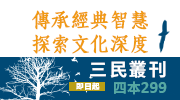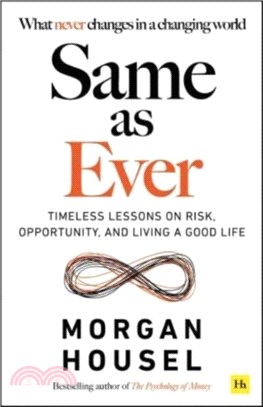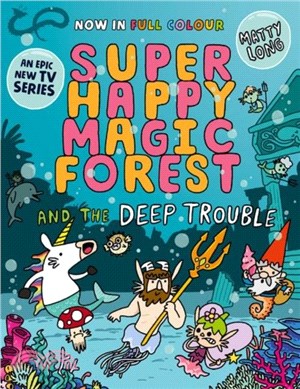Aramaic Word Study II: Discover God's Heart In The Language Of The New Testament
商品資訊
ISBN13:9781960024008
出版社:TRUE POTENTIAL
作者:Chaim Bentorah
出版日:2022/12/07
裝訂:平裝
規格:22.9cm*15.2cm*1.1cm (高/寬/厚)
商品簡介
相關商品
商品簡介
Although Jesus and His disciples spoke a dialect of Aramaic known as Old Galilean, we do not have any surviving manuscripts of the New Testament in the Old Galilean. The closest we have are a few manuscripts of the New Testament in the Syriac, a dialect of the Old Galilean Aramaic.
The Syriac is the closest to the Old Galilean we have in the New Testament today, yet it is not entirely the same as the Old Galilean. It is sort of like the difference between the English spoken in Australia and the United States.
Despite the differences in idioms and colloquial expressions with words totally unknown in the American English language, it is still English, only with a different dialect. Yet, there is no reason an American citizen would not be able to effectively carry on a meaningful conversation with a native-born Australian. It is pretty much the same with the various dialects of Aramaic. However, there is always the danger of error and mistranslation.
Although we know very little at this time about the Old Galilean dialect of Aramaic, we do understand many other dialects of Aramaic, particularly the Syriac, which has a version of the New Testament and some ancient documents to support the present Aramaic Bible known as the Peshitta.
Most Biblical scholars believe that the inspired text of the New Testament was written in the Greek and not the Aramaic, although they do agree that the language Jesus spoke was Aramaic. The Eastern church, however, believes that the inspired text of the New Testament was in Aramaic.
This writer holds the position that the inspired text of the New Testament was in Koine Greek, but that the language spoken by Jesus, His disciples, and the Apostle Paul was Aramaic and that many words in the New Testament were dictated by the disciples and Paul in Aramaic to a scribe who translated these words into Greek. When you translate from Aramaic into Greek, you do have problems finding a proper Greek word to fit the Aramaic word. For instance, the Word agape is used for racham. Yet, agape does not fully express the nature of racham. When Jesus spoke with Peter, he asked Peter if he agape Him. In the Aramaic, the word racham is used, which is the best Greek word to use for racham, but it is hardly a cognate of the word racham.
I write this book praying that my readers do not use the Aramaic as the final word but as a source to lead them to a deeper understanding of many of the problem passages that we have in the New Testament. It is the Holy Spirit who leads us into all truth and anything shared in this book should ultimately be considered in the words of Colossian 3:15: "And let the peace of God rule in your hearts, to the which also ye are called in one body; and be ye thankful."
The Syriac is the closest to the Old Galilean we have in the New Testament today, yet it is not entirely the same as the Old Galilean. It is sort of like the difference between the English spoken in Australia and the United States.
Despite the differences in idioms and colloquial expressions with words totally unknown in the American English language, it is still English, only with a different dialect. Yet, there is no reason an American citizen would not be able to effectively carry on a meaningful conversation with a native-born Australian. It is pretty much the same with the various dialects of Aramaic. However, there is always the danger of error and mistranslation.
Although we know very little at this time about the Old Galilean dialect of Aramaic, we do understand many other dialects of Aramaic, particularly the Syriac, which has a version of the New Testament and some ancient documents to support the present Aramaic Bible known as the Peshitta.
Most Biblical scholars believe that the inspired text of the New Testament was written in the Greek and not the Aramaic, although they do agree that the language Jesus spoke was Aramaic. The Eastern church, however, believes that the inspired text of the New Testament was in Aramaic.
This writer holds the position that the inspired text of the New Testament was in Koine Greek, but that the language spoken by Jesus, His disciples, and the Apostle Paul was Aramaic and that many words in the New Testament were dictated by the disciples and Paul in Aramaic to a scribe who translated these words into Greek. When you translate from Aramaic into Greek, you do have problems finding a proper Greek word to fit the Aramaic word. For instance, the Word agape is used for racham. Yet, agape does not fully express the nature of racham. When Jesus spoke with Peter, he asked Peter if he agape Him. In the Aramaic, the word racham is used, which is the best Greek word to use for racham, but it is hardly a cognate of the word racham.
I write this book praying that my readers do not use the Aramaic as the final word but as a source to lead them to a deeper understanding of many of the problem passages that we have in the New Testament. It is the Holy Spirit who leads us into all truth and anything shared in this book should ultimately be considered in the words of Colossian 3:15: "And let the peace of God rule in your hearts, to the which also ye are called in one body; and be ye thankful."
主題書展
更多
主題書展
更多書展今日66折
您曾經瀏覽過的商品
購物須知
外文書商品之書封,為出版社提供之樣本。實際出貨商品,以出版社所提供之現有版本為主。部份書籍,因出版社供應狀況特殊,匯率將依實際狀況做調整。
無庫存之商品,在您完成訂單程序之後,將以空運的方式為你下單調貨。為了縮短等待的時間,建議您將外文書與其他商品分開下單,以獲得最快的取貨速度,平均調貨時間為1~2個月。
為了保護您的權益,「三民網路書店」提供會員七日商品鑑賞期(收到商品為起始日)。
若要辦理退貨,請在商品鑑賞期內寄回,且商品必須是全新狀態與完整包裝(商品、附件、發票、隨貨贈品等)否則恕不接受退貨。





















![Wicked [Movie Tie-In]:魔法壞女巫電影原著](https://cdnec.sanmin.com.tw/product_images/006/006285284.jpg)


